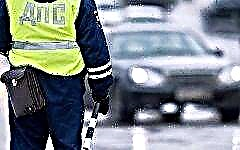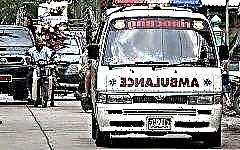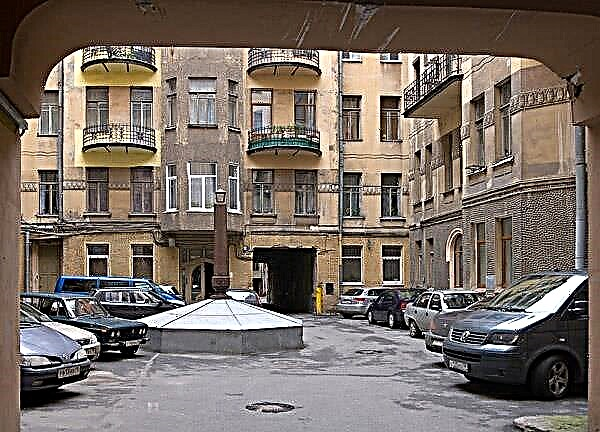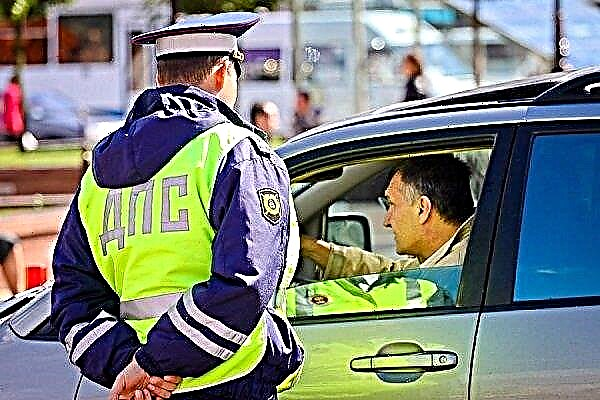
The content of the article:
- The situation on the roads and the need for tightening measures
- Features of the proposed bill
- Feasibility and efficiency - in question
The fight for road safety is becoming more and more important every day, especially given the constantly growing traffic. Unfortunately, the main mechanism of work in this direction in Russia is the toughening of responsibility for various violations. The latest legislative initiative boils down to a proposal to deprive of rights for three identified traffic violations. We will try to figure out how effective this solution is and how it will affect the traffic situation.
The situation on the roads and the need for tightening measures

If we take into account the fact that every year the number of accidents, including those with victims, is steadily growing, the need to take action as soon as possible seems obvious. Significant sums are allocated annually to improve the safety of Russian roads, which are spent extremely inefficiently. Low discipline of drivers and neglect of elementary rules are called as the root cause.
Indeed, there is a certain category of motorists for whom the payment of even an impressive fine does not have a significant limiting effect. It is the desire to obtain leverage over them that explains the regular increase in fines and the tightening of administrative and criminal liability.
At the same time, another important aspect is forgotten, which predetermines the effectiveness of punitive measures - their inevitability... There is no point in tightening responsibility if there is a way to avoid it. And this is the main problem.
Thus, there is an urgent need to create systems with a progressive scale of responsibility, which would make it possible to ensure the achievement of two goals at once - toughening responsibility for those who systematically and deliberately commit a violation, and obtaining the so-called "preventive" effect, which would signal drivers about the need to increase responsibility.
Features of the proposed bill

Due to the peculiarities of the road situation in Russia, the use of such harsh measures as deprivation of the right to drive a car after three violations raises certain objective concerns. That is why, already at the initial stage of legislative activity, it was proposed to take into account not all violations, but only especially grave ones:
- driving through a red light;
- exceeding the speed by more than 40 km / h;
- Failure to provide travel to the vehicle with the priority;
- violation of the rules for traveling at level crossings;
- driving into the oncoming lane;
- failure to give priority to pedestrians.
As in the case of other serious violations, only those cases that are recorded directly by the inspector will be taken into account. It is this factor that reduces the inevitability of punishment.
It is the last violation in the above list that causes the greatest number of questions, since until now the law has not determined the procedure for granting an advantage to a pedestrian. In this case, the moment of the need to give way is considered the moment when a pedestrian enters an unregulated crossing. However, the mentality and features of heavy traffic on multi-lane roads do not allow drivers who are in the third or more lane from a pedestrian to see him in time and take measures for smooth and safe braking for other road users.
As an alternative concept, it was proposed to introduce the term "Travel without creating obstacles to the pedestrian"
And now let's touch on another important issue - the organization of traffic. The fact is that in a number of cases the motorist is faced with a situation when the signs limiting the speed of movement do not correspond to the real road situation - for example, they were left after the completion of repair work. In this case, it is quite easy to significantly exceed the speed. The same applies to the provision of an advantage, since there are plenty of intersections with incorrectly placed signs in any city. Thus, it is possible to fall into the category of malicious violators by a simple coincidence.
According to the bill approved in the first reading, three offenses must be committed within one year... Thus, the ball system in effect in the USSR was taken as a prototype of this law. The problem is that then the system was canceled due to the excessive subjectivity of its functioning. Thus, Viktor Pokhmelkin, chairman of the Russian Motorists' Movement, argues that a return to the expansion of the inspector's powers will inevitably lead to an increase in the corruption component.

The coordinator of the Blue Buckets movement Pyotr Shkumatov admits that it will be possible to “buy off” the inspector, but, according to his position, all these problems will fall on the shoulders of persistent violators who deliberately disregard traffic rules.
If the driver does not have a valid driving license at the time of the third violation, then an administrative fine of 10 to 30 thousand rubles will be applied to him.
The year specified in the draft law is calculated from the date of entry into force of the first committed offense. If the motorist appealed against it in accordance with the established procedure, but was still found guilty, then the countdown does not start from the moment the decision was made, but, as mentioned earlier, from its entry into force. If the third offense was committed on the 366th day after the execution of the penalty obligations for the first violation, then the deprivation of rights will not be made, since the first will already be canceled.
Thanks to the flurry of criticism that the first version of the bill was subjected to, the most common and fairly simple violations were excluded from it, be it parking in the wrong place or maneuvering without turn signals. Otherwise, the vast majority of motorists could be deprived.
In foreign practice, there are direct analogues of the point system, and upon committing a certain number of violations (accumulating a given number of points), the rights are withdrawn. The driver can write off part of the accumulated points by undergoing retraining or training.
The same system was proposed in Russia quite recently, but was rejected due to the presence of double punishment for the same offense. In the current version, the principle remains the same, but now there is no mention of the duality of punitive measures.
It is necessary to take into account the fact that fines are a serious source of budget replenishment, therefore, in crisis years, along with taxation, administrative fees also increase.
The bill has already been approved in the first reading, however, according to Vyacheslav Lysakov, First Deputy Chairman of the State Duma Committee on Constitutional Legislation and State Construction, a number of significant amendments and mitigation of liability are possible in the second reading. The MP noted that the adoption of the law is a forced and urgently necessary measure, although he admitted that the effectiveness of the proposed measures would be extremely low.
Feasibility and efficiency

If we take into account the mechanisms of functioning of the proposed draft law, it becomes obvious that the punitive function will have a very low efficiency. This is primarily due to the fact that in recent years the number of stationary traffic police posts has been systematically reduced, as has the number of patrol cars. Thus, in the overwhelming majority of cases, the perpetrator of the offense will get off with a fine, since this fact will be recorded using visual control.
As for the increase in the amount of fines levied, it is almost impossible to find the line at which they will hit the pockets of the wealthiest offenders and not become an unbearable burden for the middle class. That is why the work on ensuring road safety should be emphasized on this point as well. So, according to the LDPR deputies, the amount of the fine must be tied to the level of the violator's income.
As arguments in favor of the adoption of the bill, official statistics are cited, according to which about 14 thousand people die in road accidents in Russia per year, and more than 40% of all identified violations are committed by people who already have several administrative penalties.
According to Deputy Interior Minister Igor Zubov, this law will provide the department employees with effective mechanisms for punishing repeat offenders. However, such a statement does not have sufficient arguments, since even now, for repeated violation of some rules, the law provides for the deprivation of a driver's license, but this does not prevent malicious violators from avoiding responsibility.
Another positive aspect of the new bill is the precautionary nature of every violation committed, since during the operation of the old point system, it was found that if the sum of the accumulated points approached the critical mark, the driver's discipline increased significantly.
This principle of punishment introduces elements of a progressive scale, according to which the more violations are committed over a certain period, the more serious consequences it will have. As an alternative to the three violations, it was proposed to take into account the amount of fines paid for 12 months, which made it possible to exclude direct interaction between the driver and the inspector, as well as to take into account all violations, regardless of their severity.
In this version, the draft was not approved for the reason that the constituent entities of the Russian Federation have the statutory right to adjust the amount of fines levied for certain violations, which excludes the equality of all citizens before the law.

Unfortunately, it is extremely difficult to appeal against such violations as exceeding the speed limit, if we are not talking about an overestimation several times relative to the maximum speed of the vehicle. As for the exit into the oncoming lane, the presence, even on federal highways, of sections on which the signs contradict the applied road markings is a generally recognized fact.
Formally, there are prerequisites for increasing the workload of courts, since the deprivation of rights will force many car owners to challenge the decisions made, which were previously simply paid in order to avoid wasting time.
The logical conclusion of the idea of the bill would be to toughen the responsibility for driving a car by a person deprived of a driver's license, and the punishment itself would also be determined on a progressive scale.
Conclusion
Based on their detailed consideration of the features of the proposed law, as well as the features of the functioning of the direct supervisory authorities, we can conclude that the idea outlined in the document has not yet found a clear expression in the form of strictly defined and well-developed system rules. Simply put, the bill is frankly crude, and despite the obvious need to take such measures, it will not give the desired effect.











